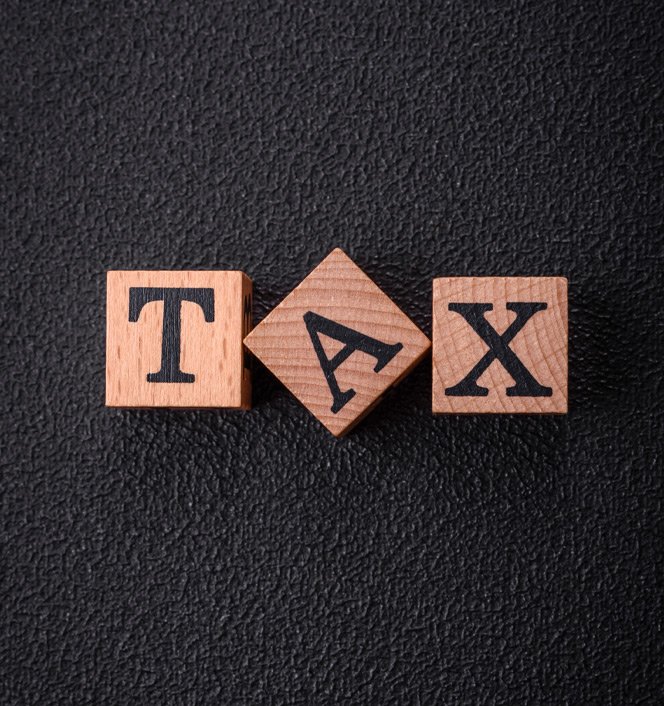Business Income Tax
Expert Solutions for Compliance and Timely Filing
Simplifying Business Income Tax in Bangladesh
In Bangladesh, business income tax is levied on the income generated from business activities. Business income is defined as the profit earned or accrued from conducting any business or trade within Bangladesh. Under the scope of company tax, it also includes the value of any benefits or perquisites received by the business during the relevant tax year in Bangladesh. Frontiers Consulting (BD) Ltd (FCBL) is one of the leading providers of business tax services in Bangladesh. At FCBL, we assist businesses in preparing tax returns and ensuring timely payment of corporate taxes. Filing business tax returns in Bangladesh can be complex and time-consuming, potentially diverting your focus from core operations if your corporation tax is not paid in compliance with Bangladeshi tax laws. With our expert tax preparation services, FCBL ensures that your business remains compliant with tax regulations while filing your business tax returns on time.


Tax Day
A company must always be mindful of the deadlines for filing its tax return in Bangladesh. The tax return submission deadline is referred to as Tax Day. For a company in Bangladesh, the Tax Day is the 15th day of the seventh month following the end of the income year. The income year in Bangladesh typically runs from July to June. However, multinational companies (MNCs) can seek special approval from the National Board of Revenue (NBR) to change their income year if necessary.
Indirect Tax
Indirect taxes in Bangladesh are taxes that are levied on goods and services rather than on income or profits. These taxes are typically paid by consumers, but collected by businesses or other intermediaries on behalf of the government. Indirect taxes play a significant role in the tax system of Bangladesh and are primarily regulated by the National Board of Revenue (NBR). Below are the major types of indirect taxes in Bangladesh.
Withholding Taxes
Withholding taxes refer to the taxes that are deducted at the source of income, before it is paid to the recipient. These taxes are collected by the government directly from the payer, who then remits the tax to the National Board of Revenue (NBR). Withholding taxes are applicable on various types of income, including but not limited to salary, dividends, interest, rent, and payments for services. The purpose of withholding tax is to ensure that tax is collected in advance, reducing the chance of tax evasion.
Here are some key points about Withholding Taxes in Bangladesh:
- Certain payments, such as salaries, interest on loans, and rent, require the payer to withhold a portion of the amount and remit it to the tax authorities on behalf of the payee.
- Salary: Employers are required to withhold tax on employee salaries according to the applicable income tax slabs.
- Dividends: Companies paying dividends to shareholders must deduct withholding tax at the prescribed rate.
- Interest: Withholding tax is applied to interest paid on loans, deposits, and other financial instruments.
- Royalties & Technical Fees: Payments made to foreign or local entities for royalties, patents, or technical services may be subject to withholding tax.
- Rent: Payments for the use of property (real estate) may also attract withholding tax.
- The rate of withholding tax depends on the nature of the income and the status of the recipient (whether they are a resident or non-resident). For example:
- Dividends: Typically taxed at 15% for residents and 20% for non-residents.
- Salary: The rate varies based on the income slab, as per individual tax rates.
- Interest: Rates may vary depending on the type of loan or deposit.
- The payer is responsible for remitting the withheld tax to the NBR. This must typically be done by the 15th of the following month.
- The recipient of the income can usually claim credit for the withholding tax when filing their annual income tax return. This prevents the income from being taxed twice.
- Failure to withhold and remit the tax can result in penalties, including interest and fines, making it crucial for businesses and individuals to comply with withholding tax regulations.
Withholding taxes in Bangladesh help streamline tax collection and encourage tax compliance by reducing the opportunity for evasion.
Indirect Tax
Indirect taxes in Bangladesh are taxes that are levied on goods and services rather than on income or profits. These taxes are typically paid by consumers, but collected by businesses or other intermediaries on behalf of the government. Indirect taxes play a significant role in the tax system of Bangladesh and are primarily regulated by the National Board of Revenue (NBR). Below are the major types of indirect taxes in Bangladesh.
- VAT is one of the most important forms of indirect taxation in Bangladesh. It is a consumption tax applied to the value added at each stage of production and distribution of goods and services. VAT is levied on the sale of goods, services, and imports, and businesses are responsible for collecting it from customers and remitting it to the NBR.
- Customs duties are taxes imposed on goods that are imported into Bangladesh. These duties are collected by the Customs Department under the NBR. Customs duties are designed to regulate the import of goods, protect local industries, and generate revenue for the government.
- Supplementary Duty is an additional tax imposed on certain goods and services, usually those considered luxury or non-essential. The SD is generally applied to items that are not basic necessities or that are subject to high consumption, such as tobacco, alcohol, and expensive vehicles.
- Excise duty is a tax levied on certain goods produced or manufactured within the country. It is typically imposed on goods such as tobacco, alcohol, petroleum products, and certain luxury items.
- Advance Income Tax (AIT) is levied on certain imported goods at the time of importation. This is a form of prepayment of income tax on certain goods, and it is deducted at the time the goods are cleared through customs. This tax is collected by the customs authorities and later adjusted against the taxpayer’s total income tax liability.
- Stamp duty is levied on various financial transactions such as property transfers, agreements, and contracts. It is applied to legal documents and is typically a percentage of the transaction value. The Registrar of Deeds administers stamp duty collection in Bangladesh.
- Excise duties are specifically levied on certain goods, like alcohol and tobacco. The excise duty on these products is one of the highest, and it serves both as a revenue-generating tool and a method to control consumption of these products.
- Luxury taxes in Bangladesh are applied to certain luxury items like expensive cars, yachts, and high-end goods. These are often intended to target high-income earners and reduce the consumption of luxury goods.
- When goods are imported into Bangladesh, VAT is applied to the value of the goods at the time of import. The import VAT rate is generally 15%, and it is collected by the customs authorities at the point of import. Indirect taxes form a significant part of the taxation system in Bangladesh. These taxes, such as VAT, customs duties, supplementary duties, and excise taxes, are essential for generating government revenue and regulating various sectors of the economy. Businesses must ensure compliance with these taxes, including timely collection and remittance, to avoid penalties and legal issues.
Accounting Method
The methods of tax accounting services in Bangladesh are largely aligned with International Accounting Standards. The accounting method for companies is similar to the statutory audit requirements under the Companies Act 1994, meaning that income tax audits and statutory audits are essentially the same. Along with the submission of the tax return in Bangladesh, companies are also required to submit audited financial statements for the relevant period. These financial statements must be audited in accordance with the Bangladesh Standards on Auditing and prepared in compliance with Bangladesh Accounting Standards and the Bangladesh Financial Reporting Standards.
Who is Subject to Bangladesh Income Tax?
Every company, branch office, liaison office, representative office, and joint venture (JV) company registered in Bangladesh is required to file an annual tax return with the National Board of Revenue (NBR).
Tax Rates in Bangladesh
The rates are established by the current tax laws and the annual Finance Act. Any changes to the tax laws are published through the Finance Act, such as the Finance Act of 2024.
Set Off of Losses
When formulating tax strategies and planning for company taxes in Bangladesh, it is important for a company to consider the set-off provisions outlined in the country’s taxation laws. If a business generates income from multiple sources, it may be eligible for tax relief on a particular income source where it has incurred a loss, provided certain conditions are met. This allows the company to offset the tax liability on profits from one head of income against losses from another, reducing the overall tax burden.
Carry Forward
When calculating corporation tax, a company must account for the provisions related to the carry-forward of losses from previous years. The carry-forward of business income tax losses is allowed under Bangladesh’s income tax laws, subject to certain conditions. These conditions include that the loss cannot be from speculative businesses, and the loss cannot be fully set off in a single tax year. The losses can be carried forward and set off against future taxable income for up to six assessment years, providing the company with an opportunity to reduce its tax liability in subsequent years.
Payroll Taxes
Payroll taxes in Bangladesh refer to the taxes that employers are required to withhold from employees’ salaries and remit to the National Board of Revenue (NBR). These taxes are typically deducted from an employee’s income at source and include income tax, social security contributions, and other related obligations. Here’s an overview of the key payroll taxes in Bangladesh:
- The primary payroll tax in Bangladesh is income tax, which is deducted at the source from employees' salaries. Employers are responsible for calculating and withholding the correct amount of income tax based on the employee's taxable income, as per the progressive income tax rates. Employers are required to withhold income tax from employees' monthly salaries and remit the tax to the NBR by the 15th of the following month.
- Certain allowances and exemptions are allowed under the tax law, which can reduce an employee’s taxable income. These may include:
- House Rent Allowance (HRA): Up to a specified limit, part of the employee’s house rent may be exempt from tax.
- Medical Allowance: Exemption is provided for medical expenses, subject to limits.
- Bonus and Provident Fund Contributions: Contributions to certain retirement funds and bonuses may be exempt from tax up to a limit.
- In addition to income tax, employers in Bangladesh are also responsible for making social security contributions for their employees, particularly in the form of contributions to a provident fund (PF) and gratuity. While these are not directly income taxes, they are payroll-related obligations:
- Provident Fund: Employers are required to contribute to a provident fund (typically 10% of the employee’s salary), which is a retirement benefit for employees.
- Gratuity: Employers are required to pay a gratuity to employees who have worked for the company for a specified period (usually 5 years or more). The gratuity is based on the last drawn salary and the length of service.
- Certain employee benefits and perquisites may be subject to tax under the taxation of perquisites rules. These could include:
- Company-provided cars
- Housing facilities
- Medical insurance
- Education allowances
- Other non-cash benefits
These perquisites are generally taxed as part of the employee’s income, and employers are responsible for determining the taxable value of these benefits and including them in the payroll tax calculation.
- As part of the payroll system, employers must ensure that the income tax deducted from employees' salaries is remitted to the NBR by the due date (the 15th of the month following the deduction). Failure to comply with this requirement may result in penalties.
- At the end of each tax year (which runs from July 1 to June 30), employees are required to file an income tax return that includes their total income, deductions, and the taxes already paid through payroll. If there is any discrepancy or underpayment of taxes, the employee may be required to pay the additional tax, or they may receive a refund if too much tax was deducted.
- Employers who fail to withhold and remit the correct amount of tax may face significant penalties, including:
- Fines and interest for late submission or underpayment.
- Liability for the employee’s tax if the employer fails to deduct tax at source.
Payroll taxes in Bangladesh are an essential aspect of employee compensation and tax compliance. Employers are responsible for withholding income tax, making contributions to social security funds, and ensuring timely remittance to the NBR. Employees benefit from these payroll taxes through a system that ensures income tax is paid in installments, reducing the tax burden at year-end. It is crucial for businesses to remain compliant with these obligations to avoid penalties and ensure smooth operations.

